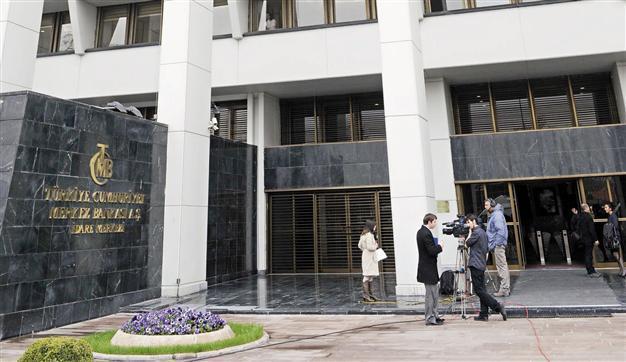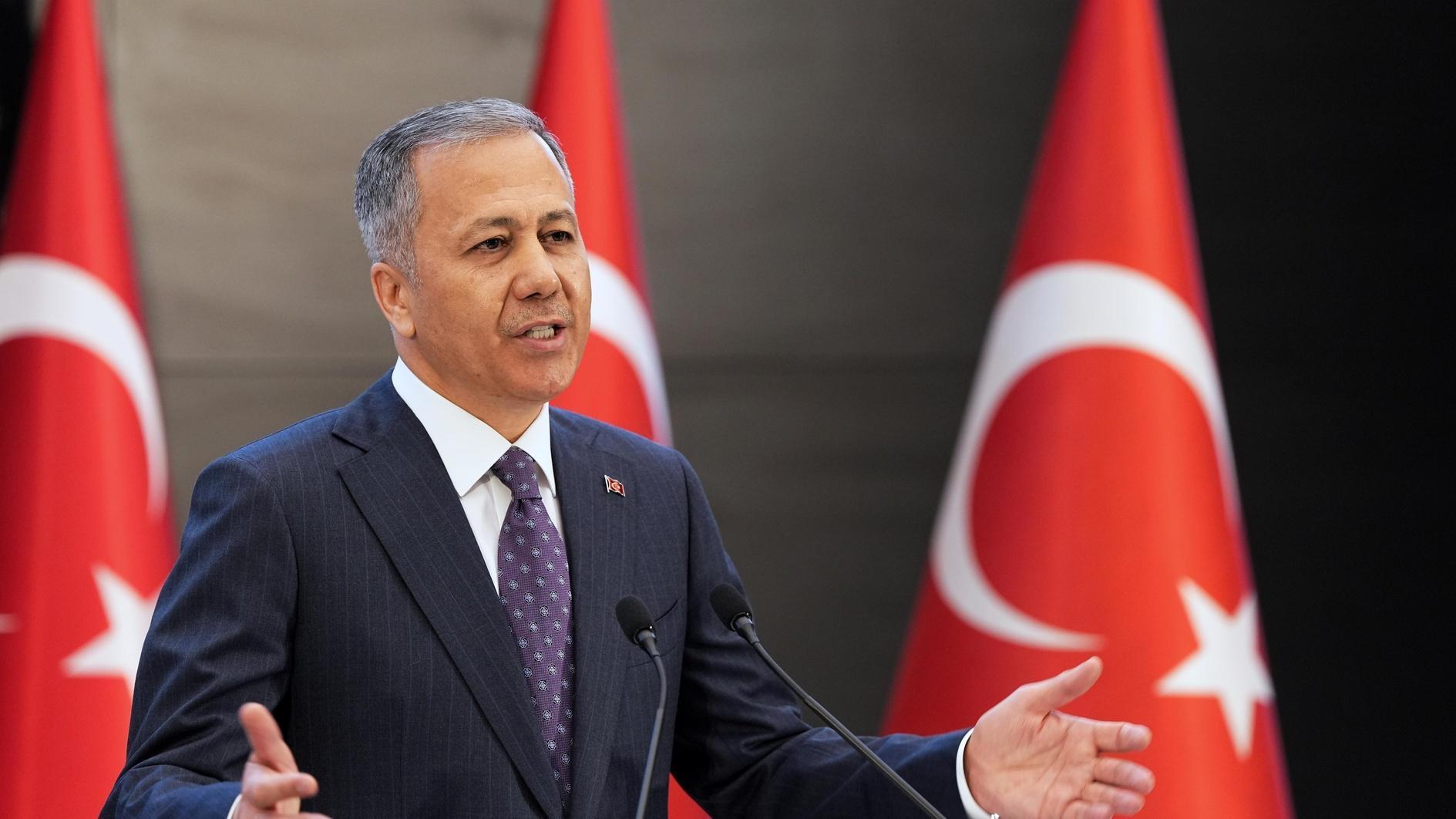Interest rates hit historic low following Central Bank decision
ISTANBUL - Anatolia News Agency

The Turkish Central Bank’s headquarters located in the capital of Ankara are seen in this photo. The bank’s decision to cut all three interest rates was welcomed by both the government and markets yesterday. DAILY NEWS photo, Selahattin SÖNMEZ
Turkey’s bond yield faced a fall to its historical low in response to central Bank’s decision to cut all three of its main interest rates by 50 basis points yesterday in an attempt to stimulate the faltering economy and guard against lira appreciation.The benchmark bond yield plummted to its record low level of 4.83 percent from 5.02 after the bank said it cut the one-week repo policy rate to 4.5 percent from 5.0 percent. It cut the borrowing rate to 3.5 from 4.0 percent and the lending rate to 6.5 from 7.0 percent.
Economy Minister Zafer Çağlayan praised the central bank’s move, but said it had “come late.”
“Why is it a late step? First, this environment could have been achieved before weakening domestic demand so much in 2012. You will see that first quarter growth will be dim because domestic demand is still weak. Second, the global conjecture is very suitable for a rate reduction. If we stayed in the same place, relatively it would be counted as a rate increase,” he said.
The bank, which has taken a lot of criticism from the government for its tight interest rate policies, embarked upon a series of rate cuts last September in a bid to boost growth, which slowed to 2.2 percent last year. It cut the main policy rate by 50 basis points in April.
“The committee indicated that, in order to balance the risks on financial stability, the proper policy would be to keep interest rates low while increasing foreign currency reserves via macroprudential measures,” the bank said in a statement.
The bank also raised forex required reserves for some maturities, while raising by 0.1 point forex reserve option coefficients, the amount of forex that lenders have to provide to hold a portion of their required reserves in foreign exchange.
“Given the slow recovery in economic activity, the need for a policy rate cut may also be defended from the price stability perspective,” said Erste Securities chief economist Nilufer Sezgin, noting that weaker growth was likely to translate into lower inflation in the medium term.
Keeping up with globe
The rate cuts have also been expected to stop cash from stimulus measures in Japan and other rich economies fuelling a rise in the Turkish Lira.
The lira currency fell to its weakest since March yesterday and traded around 1.8280 after the decision. Its real effective exchange rate (REER) in April was above the key level of 120 to the dollar, identified by Central Bank Governor Erdem Başçı as a trigger for short-term rate cuts.
Other central banks, including those of South Korea, Australia and Israel, have lowered rates in recent weeks to weaken their currencies and keep exports competitive to protect growth in the face of aggressive monetary easing elsewhere.
Lowering borrowing costs to bring them more into line with those seen in other countries could help deter capital inflows.
















